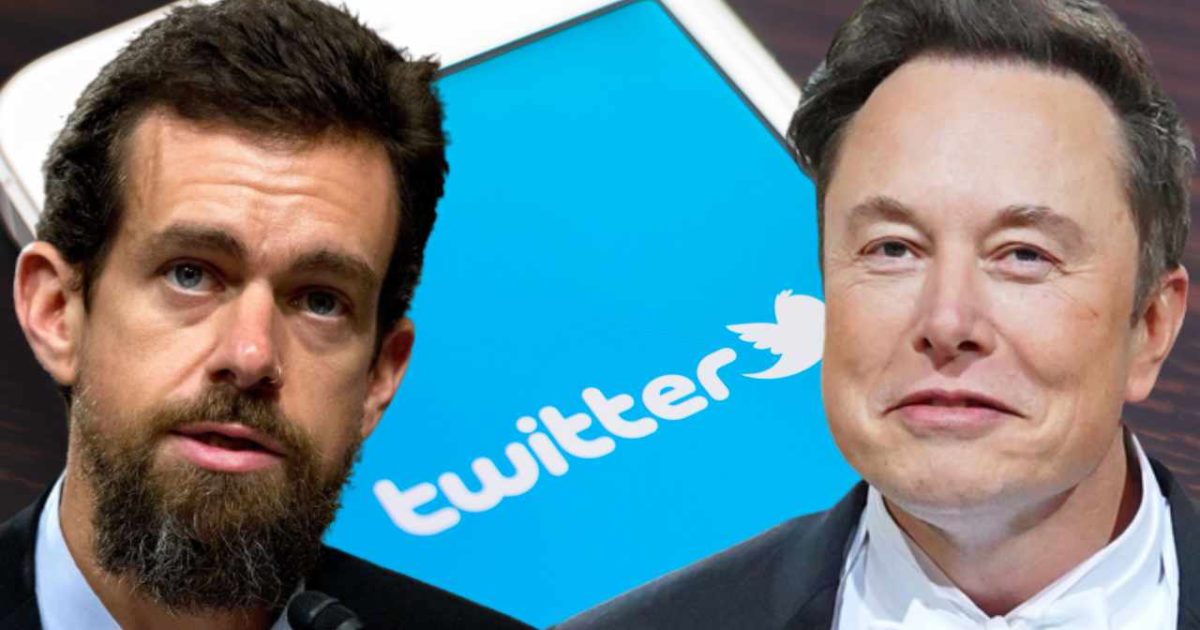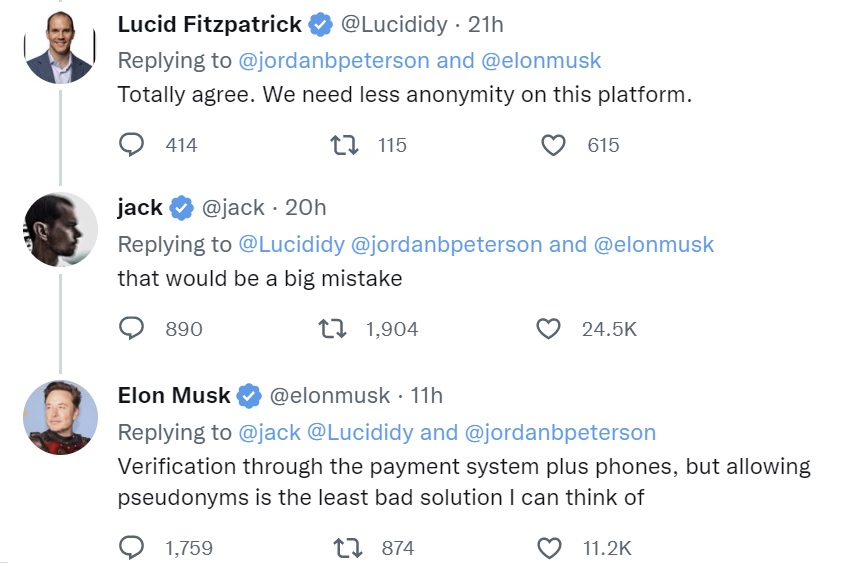Former Twitter CEO Jack Dorsey and Elon Musk, Tesla’s CEO and the new owner of Twitter, have addressed suggestions that the social media platform should have less anonymity. Clinical psychologist Dr. Jordan B. Peterson is among the users who want less anonymity on the platform while Dorsey believes it would be a big mistake to impose a policy allowing less anonymity.
Elon Musk and Jack Dorsey Discuss Twitter’s Anonymity
The topic of how much anonymity Twitter should allow its users to have has been heavily discussed on the social media platform. Clinical psychologist Dr. Jordan B. Peterson is among the Twitter users who want less anonymity on the platform. On Friday, he tweeted to Elon Musk, who recently bought Twitter for $44 billion:
Don’t allow the anonymous troll-demons to post with the real verified people.
Peterson added: “Put them in their own hell, along with others like them: LOL LULZ BRO BRUH hyper-users are narcissistic, Machiavellian, psychopathic and sadistic.”
In a follow-up tweet, the psychologist wrote: “And they’re driving polarization and destabilizing the entire domain of public discourse.” He further told Musk: “Virtualization enables psychopathy.”
At the time of writing, Peterson’s original tweet has garnered nearly 6K comments and has been liked 12.6K times. Among those who agreed with him was Twitter user Lucid Fitzpatrick who tweeted that he totally agreed that less anonymity is needed on Twitter.
However, former Twitter CEO Jack Dorsey quickly warned that having less anonymity would be a mistake for the social media platform. Musk then clarified: “Verification through the payment system plus phones, but allowing pseudonyms is the least bad solution I can think of.”
Many people agreed with Dorsey that having less anonymity would be a huge mistake for the social media platform. Several bitcoin proponents have stressed the importance of voicing opinions anonymously. One Twitter user described: “The reason we’re anonymous on Twitter is the same reason Satoshi [Nakamoto] was anonymous.”
Another Twitter user opined: “Taking away anonymity will kill Twitter. Anonymity is absolutely mandatory to allow freedom of expression and freedom of existence. Discoveries, problem-solving and learning, and investigative activities only blossom under anonymity on the internet. Otherwise, they would be dead.” A third user stressed:
Without the anonymity Twitter will absolutely die.
Replying to Peterson, Dorsey, and Musk, the pro-bitcoin CEO of Microstrategy, Michael Saylor, detailed: “The problem isn’t the anonymity, it is the lack of meaningful consequences in the event of malicious behavior. If Twitter requires verified accounts to post a security deposit and forfeit those funds for malicious/bot/spam behavior, we can have civil discourse & respect privacy.”
Do you think Twitter should have less anonymity? Let us know in the comments section below.
Image Credits: Shutterstock, Pixabay, Wiki Commons
Disclaimer: This article is for informational purposes only. It is not a direct offer or solicitation of an offer to buy or sell, or a recommendation or endorsement of any products, services, or companies. Cryptox.trade does not provide investment, tax, legal, or accounting advice. Neither the company nor the author is responsible, directly or indirectly, for any damage or loss caused or alleged to be caused by or in connection with the use of or reliance on any content, goods or services mentioned in this article.





